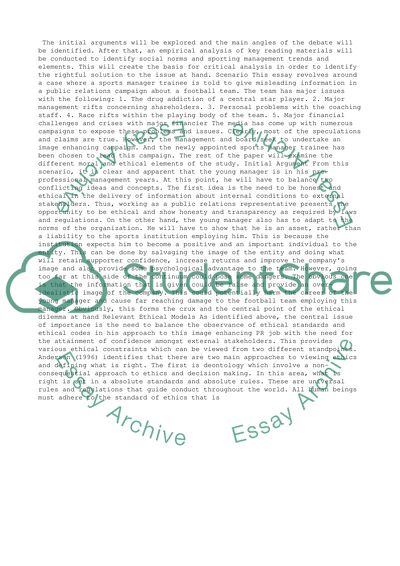Cite this document
(“Ethics in Sports Management Essay Example | Topics and Well Written Essays - 1750 words”, n.d.)
Retrieved from https://studentshare.org/management/1481303-ethics-in-sports-management
Retrieved from https://studentshare.org/management/1481303-ethics-in-sports-management
(Ethics in Sports Management Essay Example | Topics and Well Written Essays - 1750 Words)
https://studentshare.org/management/1481303-ethics-in-sports-management.
https://studentshare.org/management/1481303-ethics-in-sports-management.
“Ethics in Sports Management Essay Example | Topics and Well Written Essays - 1750 Words”, n.d. https://studentshare.org/management/1481303-ethics-in-sports-management.


